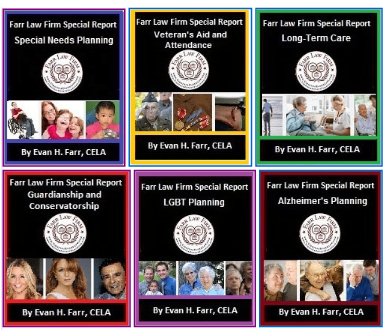Elder Abuse is a "Public Health Crisis"
Published: Fri, 06/19/15
 |
Elder Abuse is a "Public Health Crisis"If you cannot view the image below, please read the article on our blog. Q. Not long ago, my mother, who is in her 80s, was the victim of financial exploitation by an in-home health aide. It started with trips to the grocery store and small loans. Before long, the caregiver was regularly taking my mother and her credit card to the mall to purchase clothes and other items — not for my mother. Eventually, a clerk noticed what was going on and alerted security and our family. By then, however, my mother was out hundreds, possibly thousands of dollars. No charges were filed, but the caregiver was dismissed.
I wish I had recognized my mother was being abused financially, so I could have stopped it sooner. Do you know of any warning signs, so I know for next time? (Hopefully, there won't be a next time!) Also, what is being done by our government to curb elder abuse, since it has become such a serious issue, and what can I do to help my own family and other seniors in similar situations?
A. Last week (June 15) marked the 10th anniversary of World Elder Abuse Awareness Day. In Washington, D.C., the occasion included a Presidential Proclamation, a special White House Conference on Aging event on elder justice, and a first-time Global Summit on elder abuse. The day brought attention to a rapidly growing national and international problem — abuse, neglect, and exploitation of older adults. In the United States, the Department of Justice estimates that one in 10 people over age 60 is a victim of elder abuse. This translates into nearly 6 million cases a year. Abuse takes various forms, with neglect and financial exploitation rising fastest. Studies indicate that victims of financial fraud lose an estimated $3 billion a year. (And one recent report suggests the figure might be at least 10 times that amount.)
Initiatives Discussed at the Global Summit
At the Global Summit, speakers addressed initiatives taken by the Obama Administration related to elder justice, including work that began with the 2010 passage of the landmark Elder Justice Act as part of the Affordable Care Act.
Here’s an overview of initiatives discussed:
How do you Know if a Loved One is a Victim of Elder Abuse?
The first step in preventing elder abuse of a loved one is recognizing it. Keep in mind that any time a senior is not being treated correctly constitutes elder abuse. And elder abuse is not just physical--other categories include sexual, psychological, and financial abuse, and abandonment and neglect.
Pay attention to the elderly people you know. Be on the lookout for some of these common signs that abuse may be happening:
Advocate for Your Loved Ones
Elder abuse and neglect “is a public health crisis that crosses all socioeconomic lines and is an affront to human rights around the world,” said President Obama in his proclamation. As people age, they become more physically frail and less able to stand up to bullying. Waning sight, memory and hearing can allow seniors to be easily taken advantage of. Therefore, it’s important to be an advocate for the elderly people you’re close with.
The Administration on Aging says if you suspect that someone is in immediate danger of being an elder abuse victim, call 911 or contact your local adult protective services agency, which can be found through the National Center on Elder Abuse website or by calling 800-677-1116. Also, check out the resources on the Administration on Aging's National Center on Elder Abuse Website.
“We must take a stand to ensure that older Americans are safe from harm and neglect,” said Associate Attorney General Tony West in a statement. “For their contributions to our nation, to our society, and to our lives, we owe them nothing less.”
Lastly, if you suspect that a loved one has been abused or neglected by a long-term care facility such as a nursing home, you should contact an attorney who can evaluate whether or not a civil litigation action can be brought against the facility. One client of ours recently received a $100,000 settlement because his hip was broken because of the negligence of nursing home staff while moving him.
Planning is Another Way to Protect Loved Ones
Another way to protect yourself and your loved ones is to plan for long-term care, to ensure appropriate care is within reach, when needed, and that your family can afford the disastrously high cost of a nursing home without going broke.
Medicaid planning can be started while you are still able to make legal and financial decisions, or can be initiated by an adult child acting as agent under a properly-drafted Power of Attorney, even if you are already in a nursing home or receiving other long-term care. In fact, the majority of our Life Care Planning and Medicaid Asset Protection clients come to us when nursing home care is already in place or is imminent.
It's never too late to begin the process of Long-term Care Planning, also called Lifecare Planning and Medicaid Asset Protection Planning.
Planning for long-term care will not eliminate the risk of needing it, but it enables you to sort options and make smarter decisions ahead of time. As a result, you’ll have the peace of mind that no matter what happens, you will know what to do as a family. If you or your parents have not done Long-Term Care Planning, Estate Planning, or Incapacity Planning (or had your documents reviewed in the past several years), please call us as soon as possible to make an appointment for a no-cost consultation:
Fairfax Elder Law: 703-691-1888 Fredericksburg Elder Law: 540-479-1435 Rockville Elder Law: 301-519-8041 DC Elder Law: 202-587-2797 ----- Critter Corner: 8 Things You Can Do to Prevent Elder Abuse
 Dear Commander Bun Bun, I heard that elder abuse can include physical, financial, emotional, or psychological abuse, or abandonment and neglect, and am alarmed at how common it is. What are some ways to prevent elder abuse in my family and in the community?
Best,
Anita Stoppitt
----
Dear Anita,
Every year an estimated 5 million older Americans are victims of elder abuse, neglect, or exploitation. And that’s only part of the picture: Experts believe that for every case of elder abuse or neglect reported, as many as 23 cases go unreported.
Below are some things you can do to prevent elder abuse in your family and in the community:
For more information on elder abuse prevention, please visit theNational Center on Elder Abuse, Ageless Alliance or Center of Excellence on Elder Abuse and Neglect For local resources for seniors, people with disabilities, and caregivers, call the ElderCare Locator at 1-800-677-1116 or visit www.eldercare.gov. For more information on elder abuse prevention, please visit www.ncea.aoa.gov.
Hop this helps!
Commander Bun Bun
---------- Sign up for our FREE Special Reports and get the answers to your burning questions! Just click on a cover below!  |
|
||
|
This email was sent to
.
|







